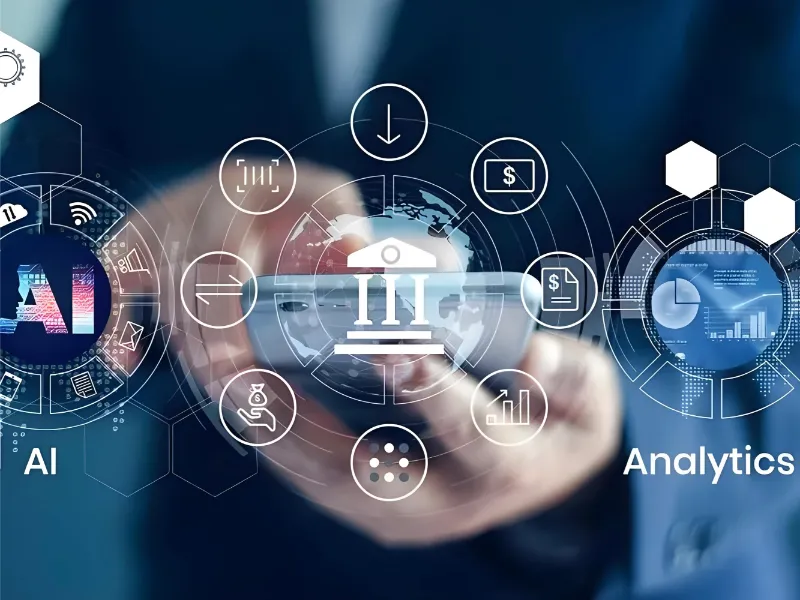- Artificial intelligence uses machine learning and other techniques to mimic human cognitive abilities to accomplish specific tasks.
- Data science involves the collection, cleaning, analysis, and visualisation of data with the aim of extracting meaningful insights and knowledge from the data.
While AI and data science overlap in some ways, they differ in their core goals, methods, and areas of application. AI focuses more on how to build intelligent systems, while data science focuses on gaining knowledge and insights from data. Both play an important role in promoting technological innovation and solving real-world problems, and the interaction between them also promotes progress and development in both fields.
Definition of AI and data science
Artificial intelligence is the science of how to enable computers to perform tasks that normally require human intelligence. AI systems typically use machine learning, deep learning, and other techniques to mimic human cognitive abilities.
Data science is a discipline that utilises data analysis methods and tools to understand and explain phenomena. It involves the collection, cleaning, processing, analysis and visualisation of data with the aim of extracting meaningful insights and knowledge from the data.
Also read: Amazon’s AI assistant ‘Refus’ is now available to all U.S. users
Also read: Is computer vision a data science?
Differences between AI and data science
1. Goals and focus: AI focuses on how to build systems that can perform intelligent tasks, emphasising the ability to mimic and enhance human intelligence. It includes the whole process from perception to decision making. Data science focuses on extracting knowledge and insights from data, emphasising the process of collecting, cleaning, analysing, and modeling data to solve real-world problems and make predictions.
2. Technologies and methods: The core technologies of artificial intelligence include machine learning, deep learning, natural language processing, computer vision, etc., which are used to build intelligent decision-making systems. Data science involves techniques such as statistics, data mining, data management, and visualisation for extracting patterns, trends, and predictive models from data.
3. Application field: The application field of artificial intelligence is wide, including automation, intelligent recommendation, robotics, automatic driving, etc., which pays more attention to the intelligent performance on specific tasks. The application of data science covers a wide range of fields, including business analytics, marketing, healthcare, financial forecasting, and more, aiming to drive decision making and optimise business processes through data.
4. Methodology: AI often relies on large amounts of data and highly complex algorithms that aim to make systems show similar or superior human intelligence at specific tasks. Data science emphasises the methods and techniques of extracting useful information from data, emphasising the quality of data and the accuracy of analysis.

